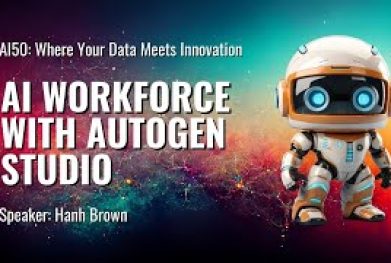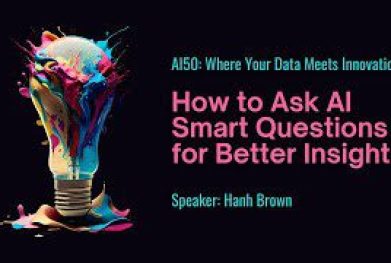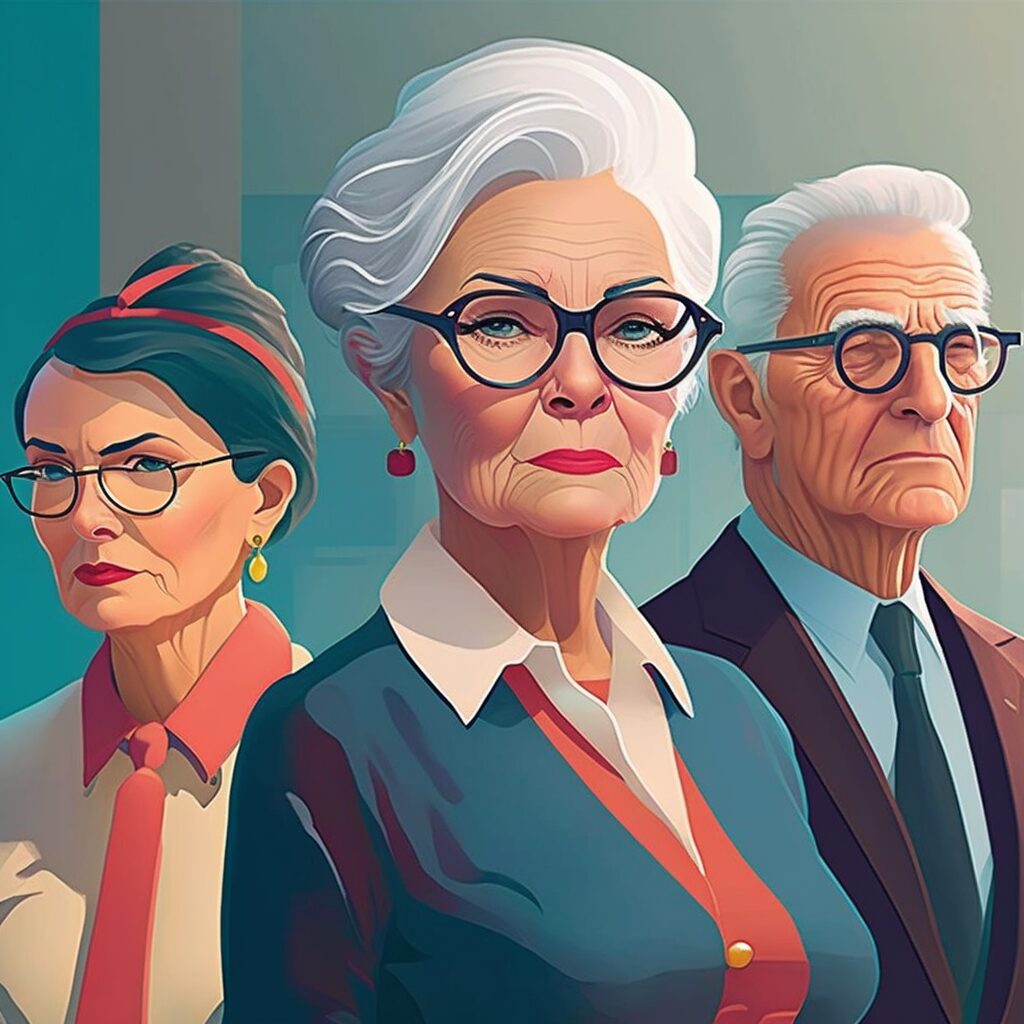Cameron:
0:00
They cannot at the same time, be exhibiting disruptive behavior, they don't need to be given a drug for anxiety or for depression because they are engaged and they are at the top of their game.And they're doing things for other people.If a person is engaged during the day, they sleep at night.And so one of the big outcomes that we see is that we see a big drop in the use of psychotropic medications,we also see drops in incident reports.We see increases in the ability to take care of yourself in independence.We see recovery of functions the ability for self care, we see a decrease in the stress of caregivers.But we also see joy.
Hanh:
1:30
Dr.Cameron Camp joins me today on Boomer Living.He is a noted Psychologist specializing in applied gerontology research and is currently serving as a Director of Research and Development for the Center of Applied Research and Dementia.Dr.Cameron is a well-known in this space for his development of the Montessori Method as an intervention for people with dementia.So I'm very eager to talk to him today about this.Dr.Cameron, thank you for joining me today on Boomer Living.
Cameron:
1:58
Excellent.Thank you for having me today Hanh.
Hanh:
2:00
Great.So now what originally got you interested in dedicating your career and to some extent your life to gerontology and specifically dementia research?
Cameron:
2:10
So when I was in graduate school,my first semester, my the advisor came into my office and this was like in 1975.And he said that Cameron Gerontology is the future.If you want a career, that is a good place to target.And being very young and knowing absolutely nothing I said sure, but what I found was that the more I started studying gerontology and working with older adults, the more, I just loved it.And my background is in cognition,memory and problem solving thinking.And so it became fascinating for me to talk to older adults, to look at the way they thought to observe wisdom firsthand, and then working with persons with dementia.It became a very interesting puzzle solving.Activity is how can we enable a person who may not remember a conversation for more than 30 minutes?How can we enable them to be able to have the answers to questions that they can't remember?If you just tell them the answer?
Hanh:
3:21
So where did the idea for the Montessori Method come from?How did the approach relate to providing care to people with dementia?
Cameron:
3:30
So for example, my mother-in-law came to stay with us for a summer and she was brought by her son, my, my brother-in-law.And he was doing an internship at the Cleveland Clinic.So he left and 30 minutes after he left my mother-in-law went to my wife, heard her daughter and said, "Where's my son?"And she said, "He's at the Cleveland Clinic.He'll be back at five thirty."She said, "All right."So that was an answer that satisfied her,but because my mother-in-law had Alzheimer's disease, in 20 minutes, she comes back to my wife and says, "Where's my son?"And this is a prototypical challenge for caregivers, for boomers are taking care of older adults in their home who has dementia.My wife, however, Montessori teacher for longer than 20 years said let's just come up with a way.So that you can have the answer that question.So she told my mother-in-law "Your son,his name will be back at five 30.", had her mom, write that message on paper because you trust your own handwriting more than someone else's taped it down to the countertop in the kitchen so that it wouldn't be taken and put in a safe place that no one can ever find.And then when her mother asked again, she said "Let's go find the answer to that.I think I know where it is."And they walked to this location and she pointed and said, what does this say?Notice she didn't tell her mother.She had her mother practice.The procedure of getting this information for herself.If you cannot store the information internally has to be stored externally, but you also have to learn and practice a procedure to get that.And you keep it in the same location, because even with dementia, people learn locations,they learn where to sit for lunch in a daycare center, they learn where their room is.If they move into long-term care,those capacities are still there.These are capacities that show up early in life, and that Montessori used to help teach children through their hands through procedures.And it's a set of abilities available to people with dementia.So she brought her mother to this location.She said, "What does this say?"The mother read it out loud.She could still read.That's a habit.That's there far into the course of dementia, if you can read the letters.And she said, "That's right.When you want to know about your son, we'll come here."30 minutes later."Where's my son?"You practice the same procedure in the same way.Same words took her there, reads it an hour later."Where's my son?There's a message about that.Let's go see."Same words.She goes.And then for the rest of the day, every hour or so, her mother would get up, walk herself to this location, read and her anxiety is reduced.And that was how she was able to learn where her son was.And what's important is two things.One, my wife enabled her mother to reduce her own anxiety, taught her a procedure because procedural learning, learning by doing learning through repetition in the right way is available to people with dementia.But second, my wife did not have to keep constantly giving her mother the answer to the question over and over again.And so that's what we're about.I've been studying this, working with my wife looking at Montessori approaches.How can we use these learning systems that kick in early in life, available to people with dementia?How can we use them to solve very real,everyday issues and take stress out of the system and enable people with dementia to circumvent their deficits?I was interested in the Montessori Method initially, because I'd heard about it when I was doing some work in a school for children,with emotional and learning disabilities.And I have an older daughter who's learning disabled.And so I'd heard about it.I didn't know much about it, but.When my two youngest children started Montessori schools, that was the same time that I was beginning to do work with persons with dementia.And I walked into that classroom and I saw all of these capacities that children had that involve learning by doing, and they involve very different learning systems than you see in traditional learning.The learning techniques that I've used with people with dementia that would work on her sons without dementia, just weren't useful.And so I, I started connecting dots and it became pretty obvious that persons with dementia still had the capacity to learn.But you had to teach them in different ways.You had to use the abilities, they still have as opposed to trying to improve a capacity that's based on brain cells that may be dying.And so by using the Montessori approach and by working with capacities still available and using these learning systems that are there to be tapped into, it became obvious that this was like a way forward.
Hanh:
8:41
Now, where is this approach being used today?And do you think it is doable for loved ones of people with dementia, or is it better practice with someone with more experience dealing with dementia treatment?
Cameron:
8:55
So where it's being used?It's it's now being used around the world.We've done a lot of work with Dementia Australia, for instance.We've worked with a training Center for Montessori for Dimentia in Singapore.I've given presentations in Taiwan.A manual on Montessori for Dementia was translated to Japanese.We have training partners throughout Europe,France, Belgium, Italy, Poland, Slovenia.We've done it work in Spain and Switzerland, Ireland, UK.We have, a training partner in Brazil.Also across Canada and the United States.So the short answer is around the world,and it can be used in any setting.This approach can be used in homes and day centers and residential care.And we've seen this actually be the case again, around the world.It's about a set of values as set of principles and a set of techniques.And the values are very basic Respect, Dignity, Equality, and Trust.Yeah.
Hanh:
10:00
So what results have you been seeing with this approach?
Cameron:
10:04
For example, when it's used in residential care, we see a dramatic decrease in the use of psychotropic medication.We see a drop in the use of sleep aids or hypnotics.And the reason for that is very straightforward.When Montessori set up her first school, she did so in a very impoverished part of Rome.And she was brought in to work with children who were preschool, but left alone in the day and destroying property.And what she found was that when you can enable children to use the abilities they have as the basis for learning and when you can engage them and engaged individual is not going to be destroying property.They're going to have their attention very focused.It's like looking at mindfulness in three and four year olds.And it's the same thing for any human being.We have a saying "It's a Human Thing."When a person with dementia is on an assembly line to put together, Welcome Back Packets for teachers who are coming back to school in their community as is happening in a place using our approach.They cannot at the same time, be exhibiting disruptive behavior.They don't need to be given a drug for anxiety or for depression because they are engaged and they are at the top of their game.And they're doing things for other people.If a person is engaged during the day, they sleep at night.And so one of the big outcomes that we see is that we see a big drop in the use of psychotropic medications.We also see drops in incident reports.We see increases in the ability to take care of yourself in independence.We see recovery of functions.The ability for self care.We see a decrease in the stress of caregivers.But we also see joy.We see people who look forward to getting out of bed in the morning, both the person with dementia and the person who provides care.We see engagement in life and people who look forward to the day.Now, when we first started this work, I had trouble.Understanding what outcomes we were producing because the measures that were in the industry were all about negative behaviors, agitation, anxiety, depression.And certainly we were getting a decrease in those or an absence of those.But what were we producing?What were the effects?And the effects were engagement, okay.Effects were of people being involved with life, and being part of a community, of being in relationship with each other.And so we talk a lot in our work about this is about creating a sense of community.In residential settings we talk about Resident Driven Communities, where the persons with dementia decide where they want to go for outings.I'll give you an example, there was a men's club at a place that started using our approach, and the one of the guys said "I think someone's taking things from my room."Now under ordinary circumstances, he would be told "No, don't worry about it.Blah, blah, blah, blah."But these guys came up with a very interesting approach to dealing with this.They created a neighborhood watch inside of their memory care community.And they would sign up to go with the security guards and they put up the signs and everyone felt safer.And people were able to contribute to the safety of their community because it was where they live.This is their home.This is their place.We say, "If you want to stop a person with dementia, standing at the door saying, I want to go home.Distraction is not the answer."That's a band-aid because you're just going to have to come back and come back.You're not dealing with the underlying cause.If you want someone to stop doing it, make them feel at home.
Hanh:
14:02
Instead of preventing them from leaving, you want to encourage them and create an environment where they, they feel at home or where they are home, which means, surroundings that include perhaps family or caring folks, caregivers.Just any of the memories that bring them back to their heritage, to what they remember as their journey of life.It could be for example, something that has meaning to them, it could be pictures.It could be abjects.It could be their hobbies.It could be a number of things.So I think, I really appreciate what you said.Instead of preventing them from leaving from unlocking the door and so forth.Let's work more towards the environment where they feel at home.That is really important.So thank you.Thank you for that.
Cameron:
14:52
You look for the underlying cause of the behavior, see.You have to understand why is this happening?And the answer is it's usually happening because of a very human thing.It's not about dementia.We say, "Why is this happening?"Because they have dementia."How do we know they have dementia?"Because this has happened.That doesn't help anybody."What would cause a person to act this way?"And so, what does a person with dementia want?They want what a person without dementia wants.They want a purpose for their life.They want to know the people that they live with.They want the people they live with to know them.They want to have a reason to get out of bed in the morning.They want to feel good about the day, when they go to bed.All of us have deficits.All of us have challenges.But It's about living well and living well.That's what everybody wants.
Hanh:
15:42
I agree.I agree.Now, is there a certain kind of dementia,a person on whom this intervention is typically more effective or is it effective to some degree across the board?
Cameron:
15:58
Yeah.We say, "If the person fogged the mirror, we work with them."And the idea is that this is person centered care.And so, we work with the person as they are, where they are today.And for example, I was in a community,Continuing Care Retirement Community,and we had people without dementia.There were people with dementia,different stages, different types.But all come together to make chef salads, to provide for people living in a homeless shelter.And the persons with really advanced dementia,were taking the stems off of the spinach, okay.And that's what they could contribute.Other people were doing more complex components of this, that everyone had the chance to contribute,and everyone was working toward the same goal.And so, the ideas that we work with the person at any stage of of dementia.If Montessori can work with children from birth through age 18, and beyond, certainly we can work with any stage of dementia.And so, we've done work with people at end-stage.We've engaged people on a regular basis.On the day they die, we work with people in hospice.And so, the shorter answer is we work with everyone.
Hanh:
17:21
What other factors impact the efficacy of the Montessori Method intervention?So, I'm thinking about things like treatment environment, buy-in from loved ones and such.What's your thought?
Cameron:
17:33
A key challenge for adopting this approach involves changing the way we think about persons with dementia and how we interact with them.Maria Montessori had two quotes that sort of drive what we do and define this distinction in approach.The first is, "Everything that you do for me, you take away from me.Everything you do for me,you take away from me."And so, when you think about this, what this means is that our job isn't to do everything for the person with dementia, and to be responsible for everything that happens in their day, doing everything for them, cooking all their meals, just basically being caretakers.Instead, the job becomes one of enabling a person with dementia to do as much for themselves and others as possible, enabling them to be as independent as possible.And so, what starts to happen, is that you see persons with dementia in residential settings,for example, who are now able to decide for themselves where they want to go for outings.What they want for a menu.What they want to do for activity.It involves, in a home setting, finding ways to enable a person with dementia, to still be able to contribute to the life of the home, to the life of the family.She also said "We do our job best when they do not know we are present."And so, I love it in residential settings, when I hear a staff member say, "Let me tell you what our residents were able to do today without me."And so, there, you see residents who lead activities for other residents.It's where you see residents deciding what social causes they want to support.For example, in a setting memory care neighborhood in Largo, Florida, the residents decided that they would have a Quarterly Social Concern Activity, their committee did.So one quarter they collected food for a food drive that was being held by a local church.And their outing was to bring the food they collected to the church for the food drive.Another quarter, they put together toiletry packets and brought those to people in a homeless shelter.And so, the idea becomes one of enabling people to live as independently as they can in home setting where they know the people they live with and they are connected with their community and with the outside world.It's the model of a home.It's the model that any person for the most part wants to have.You can have a wonderful hotel as a model, but nobody lives in a hotel.
Hanh:
20:24
Yeah.
Cameron:
20:25
You stay in a hotel until you can go home.
Hanh:
20:28
Okay.Okay.Great.So now, do you have anything else that you would like to share?
Cameron:
20:33
I think it's important for us to view this as an issue of human rights.We need to think of persons with dementia as persons.First, if you look at groups like Dementia Alliance International, and persons with dementia who are fighting to change the paradigm of care,the way we think about persons with dementia.This is about enabling persons to be able to have the same rights and privileges and the kind of life that a person without dementia has.I remember I was at the founding of the group Dementia Australia a few years ago.I was asked to write on a poster,"What is your hope for the future?"And what I wrote down was "No persons with dementia, just persons."
Hanh:
21:19
Wow.Thank you.Thank you so much to share your passion, your journey, and your impact that you're making for folks that's diagnosed with dementia.So, I think with more and more of us living longer, I think this is going to be much needed.So thank you so much.
Cameron:
21:35
It was a pleasure.Thanks for the invitation.
Hanh:
21:37
All right.Great.Take care.
Cameron:
21:39
Okay.Have a great day.
Hanh:
21:40
Bye-bye.
Cameron:
21:41
Bye-bye.









-q9j076255wsswcevv3386z1war8ejonaamkjvlms20.png)

